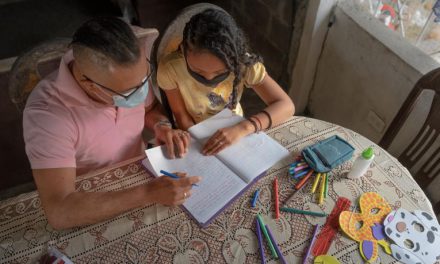Read Time:2 Minute, 56 Second

Quality data is key for developing effective policies that can prevent noncommunicable diseases (NCDs) and decrease relevant health risks for millions of people every year. The benefits of gathering and using health data on NCD risk factors became the main topic of the workshop that started in Kazakhstan on 27 September – the first event in line with the WHO Roadmap for Health and Well-being in Central Asia 2022–2025 that steps up to major health challenges in 5 countries in the WHO European Region.
There is abundant scientific evidence that NCDs, such as cardiovascular diseases, cancers, diabetes and chronic respiratory diseases, are the leading cause of death in the world. In the Region, NCDs cause 90% of deaths and 85% of years lived with disability every year. Still, NCDs and their risk factors are widely underrated and remain an obstacle to economic development in many countries.
Surveillance: a tool for saving lives
“To better understand the true burden of NCDs and to develop effective NCD prevention policies, countries need to have the best available data collected through appropriate surveillance tools,” said Dr Kremlin Wickramasinghe, Acting Head of the WHO European Office for the Prevention and Control of NCDs that organized the workshop in Kazakhstan. “Timely and comprehensive data on NCDs can become a game-changer for many Member States with high levels of NCD risks.”
The workshop on the WHO STEPwise approach to surveillance (STEPS) of NCD risk factors gathered experts from central Asian countries and gave an overview of this valuable WHO tool. The STEPS framework includes the use of 11 indicators and the creation of databases for the major NCDs at the nation-wide level.
“The STEPS workshop gives Kazakhstan a valuable tool to create a new comprehensive database on NCDs and related risk factors in the country,” said Dr Zhanar Kalmakova, Acting Board Chairman of the National Center for Public Health, Ministry of Health of Kazakhstan. “This information is a key for developing better health policies based on evidence and WHO recommendations.”
Reducing NCDs in central Asia: a health challenge and economic burden
Reducing the burden of NCDs is one of the priorities of the new Roadmap for Health and Well-being in Central Asia 2022–2025 that was created by Kazakhstan, Kyrgyzstan, Tajikistan, Turkmenistan, and Uzbekistan in consultation with WHO/Europe. The document is harmonized with the WHO European Programme of Work 2020–2025 that promotes united action for better health across the Region. The Roadmap highlights 3 special initiatives aimed at NCDs.
- Reduce the burden of cardiovascular disease.
- Accelerate action on diabetes prevention and control.
- Accelerate action on cancer prevention and control.
Roadmap for Health and Well-being in Central Asia 2022–2025: major goals
The Roadmap sets up a multi-sectoral plan that will help the 5 central Asian countries to overcome major obstacles for their health systems. In the wake of the COVID-19 pandemic, climate change and the crisis in Ukraine, this has become an even more challenging task.
According to the document, most of the countries experience major or significant challenges on their way to reducing the health burden of communicable diseases, traffic accidents, and NCDs/mental health. There is also room for improvement in other areas, such as environmental hazards and tobacco control.
“The Roadmap can help central Asian countries to amend their policies, mobilize resources, find new ways of subregional and regional cooperation, and create momentum to create a better health ecosystem that each of the participating Member States can benefit from,” added Dr Wickramasinghe.












